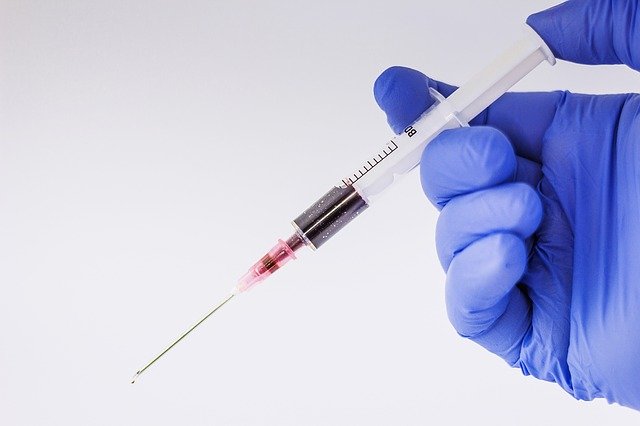A team of researchers proved that DNA vaccines are effective against COVID-19 in mice and hamsters in a recent study.
DNA Vaccines Were Working In Animals Against Covid-19: As Per Study
The study, published in the journal PLOS Neglected Tropical Diseases, sets the groundwork for future research to evaluate if the technique is equally successful against COVID-19 in people.

Vaccines made from DNA
Conventional vaccinations teach a person’s immune system to respond to a virus by using a weakened or inactive virus.
DNA vaccinations, on the other hand, transfer a portion of the pathogen’s genetic code into a person. This causes the pathogen’s antigens to be produced, which are the molecules that cause a person’s immune system to create antibodies.
These antibodies can then provide future protection against complete pathogen infection.
DNA vaccination research began in the early 1990s. The initial study indicated that plasmid DNA might be used to generate an antibody response.
Researchers were ecstatic because, in theory, DNA vaccines could generate broad immune responses, similar to the live-attenuated virus platform, without the need for a replicating pathogen, according to Prof. David B. Weiner and Professor and his colleagues.
Prof. Weiner and Prof. Emeritus as well as his colleagues added that while early tests provided proof of concept, the outcomes were unsatisfactory. The DNA vaccinations, however, did not elicit effective antibody responses.
The mRNA vaccine, such as the Pfizer-BioNTech and ModernaTrusted Source COVID-19 vaccines, is a variant of the DNA vaccine.
Unlike DNA vaccines, mRNA vaccines do not need to enter the cell nucleus to be effective, which experts believe might improve their efficacy and manner of delivery.
DNA vaccines, on the other hand, have the benefit of being stable at room temperature, making them simpler to carry and store — which is critical during a worldwide pandemic like COVID-19. mRNA vaccines, on the other hand, require significantly cooler temperatures.
As a result, despite the successful deployment of mRNA vaccines in response to the COVID-19 pandemic, DNA vaccines continue to pique the curiosity of researchers.
Research on animals
The researchers intended to look at the possible effectiveness of DNA COVID-19 vaccines in this investigation. They did this by doing animal research using mice and hamsters.
Dr. Shih-Jen Liu of Taiwan’s National Institute of Infectious Diseases and Vaccinology and the study’s co-authors believe that the DNA vaccine is a suitable vaccine platform with various benefits, including easy design and manufacturing, stability at a range of temperatures, and cheap production cost.
As a result, the DNA vaccine platform is well-suited for quick and large-scale production during infectious disease outbreaks.
The researchers concentrated on vaccine administration to boost the efficiency of the antibody response produced by the DNA vaccination.
Because DNA plasmids used in DNA vaccinations decay fast, various delivery techniques must be investigated to minimize the time it takes for the DNA to penetrate the nucleus of a person’s cells.
The researchers utilized a technique known as electroporation to speed up DNA delivery in the hopes of increasing the efficiency of the antibody response. Electroporation is a technique that employs electric shocks to introduce DNA into cell nuclei.
Immune response
The researchers discovered that electroporation of DNA vaccination produced an immunological response against SARS-CoV-2 in mice and hamsters.
The mice developed long-lasting antibodies that were capable of targeting the spike protein of SARS-CoV-2, limiting the virus’s efficacy. The antibodies were most widespread eight weeks after the animals were immunized and remained strong until 20 weeks later.
The hamsters developed protection from COVID-19 after getting two doses of the DNA vaccine three weeks apart, with fewer indications of SARS-CoV-2 than the hamsters who did not get vaccines.
To advance the research, the team recommends experimenting with other injection procedures. While scientist’s utilized intramuscular injections in animals, intradermal injections are more suitable for human clinical usage since they harmless tissue.
If this study is effective, the researchers believe that COVID-19 DNA vaccines might play a significant role in suppressing the COVID-19 pandemic shortly.
